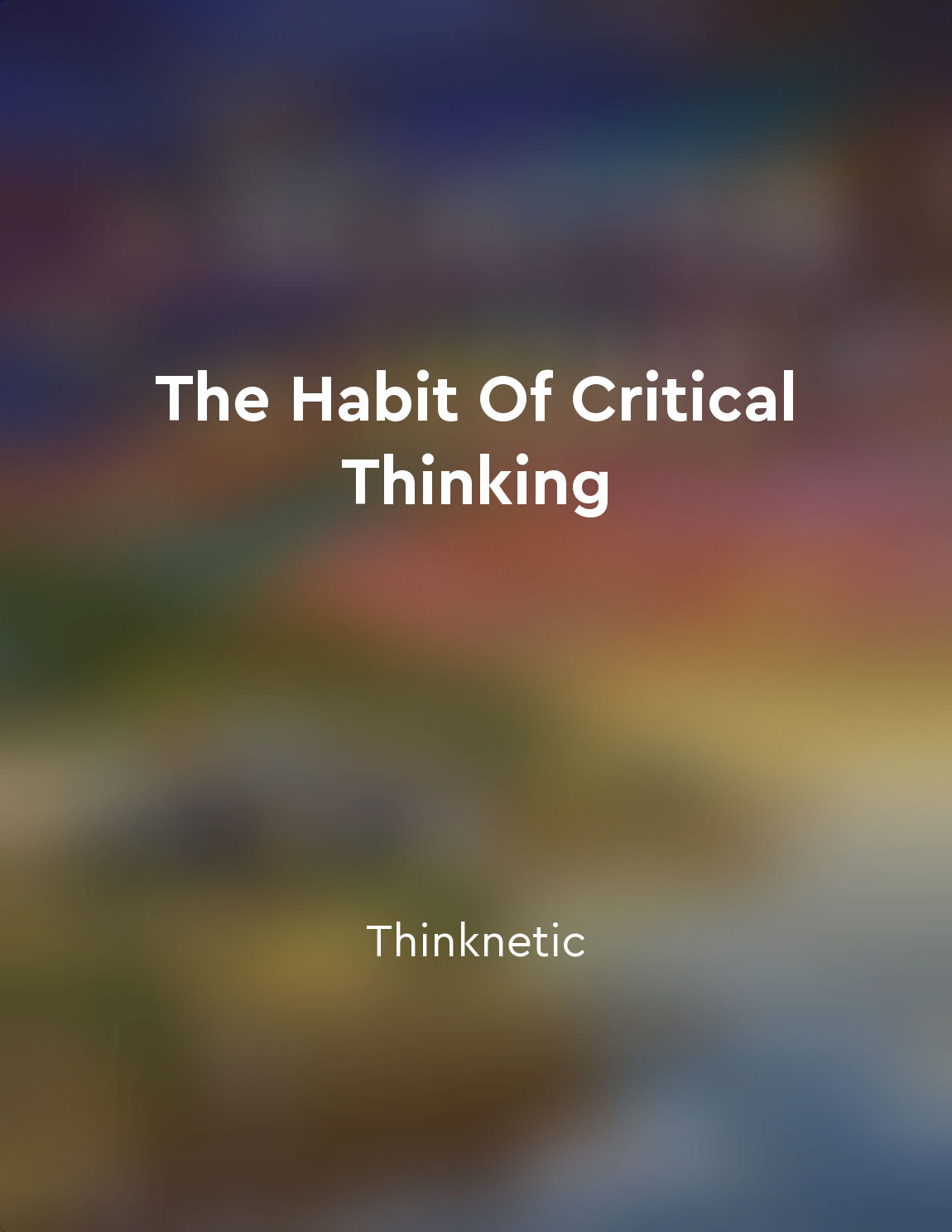Significance of developing minds from "summary" of Developing Minds: A resource book for teaching thinking by Arthur L. Costa
The development of minds is a critical task that educators must undertake with great care and intentionality. Our minds are the gateway to knowledge, understanding, and growth, and it is through the cultivation of our thinking abilities that we are able to navigate the complexities of the world around us. By developing our minds, we are able to expand our capacity for learning, problem-solving, and critical thinking, all of which are essential skills for success in today's fast-paced and ever-changing society. When we focus on developing minds, we are not simply aiming to increase intelligence or academic achievement. Rather, we are striving to empower individuals to think more deeply, critically, and creatively about the world they inhabit. By honing their thinking skills, individuals are better equipped to analyze complex situations, make informed decisions, and communicate effectively with others. In essence, developing minds is about fostering a mindset of curiosity, inquiry, and reflection that enables individuals to engage with the world in a meaningful and purposeful way. The significance of developing minds lies in its ability to shape the way individuals approach challenges, opportunities, and relationships in their lives. By nurturing their thinking abilities, individuals are better prepared to adapt to new circumstances, overcome obstacles, and achieve their goals. Moreover, developing minds also plays a crucial role in promoting lifelong learning and personal growth. When individuals are encouraged to think critically and creatively, they are more likely to seek out new experiences, acquire new knowledge, and continuously improve themselves.- The significance of developing minds cannot be overstated. It is through the cultivation of our thinking abilities that we are able to unlock our full potential, both as individuals and as members of society. By investing in the development of minds, educators have the power to transform lives, instill a love of learning, and empower individuals to thrive in an increasingly complex and interconnected world. Ultimately, the true value of developing minds lies in its ability to inspire individuals to think deeply, act purposefully, and make a positive impact on the world around them.
Similar Posts
Reflect on past successes to boost your confidence
When we find ourselves facing challenges or feeling unsure of ourselves, it can be helpful to take a moment to reflect on our p...
Embrace change and adaptability
Change is a constant in life. It is inevitable. It is something we all experience, whether we like it or not. The key is how we...
Life is a mystery that science seeks to unravel
In the midst of the vast universe, man finds himself standing on a tiny planet, surrounded by endless mysteries waiting to be u...
Prioritize evidence over emotions
When it comes to making decisions, it's easy to let our emotions take the driver's seat. We may feel strongly about a certain o...
Intelligence is a complex trait influenced by multiple factors
Intelligence is a complex trait, and its development is influenced by a multitude of factors. These factors can be genetic, env...
Anxiety arises from our awareness of our own mortality
Anxiety is a complex emotion that can manifest in various ways, affecting individuals on both a psychological and physiological...
Engaging students in reflective practices
Reflective practices involve helping students develop the ability to think about their own thinking. This process requires teac...
Adults should respect children's ideas and opinions
Children are curious creatures, constantly exploring the world around them and forming their own unique ideas and opinions. As ...

Practice is key
The concept that underlies the development of critical thinking skills is simple yet profound: practice is key. It is through c...
Play is an essential part of a child's learning process
In the world of children, play is serious business. It is not just a way to pass the time or entertain oneself; it is an essent...

